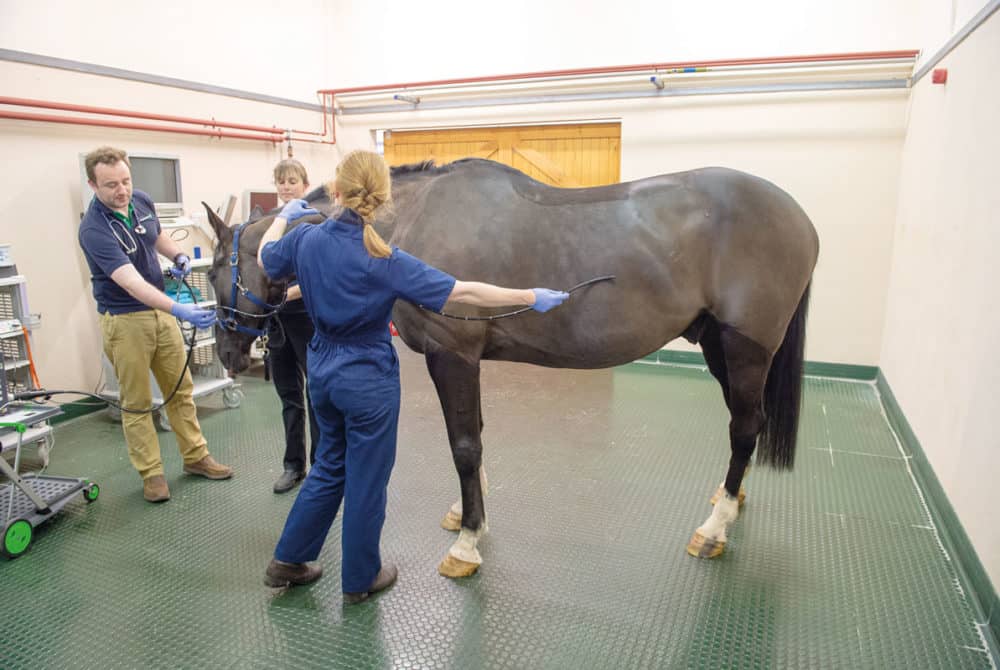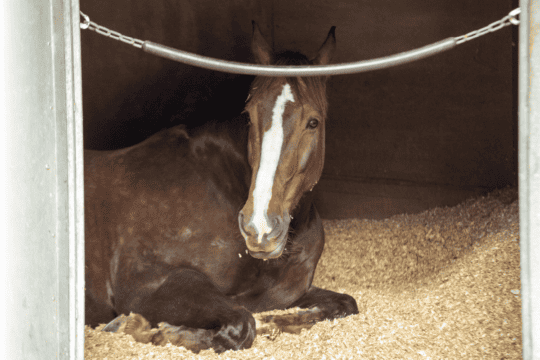Gastric ulcers
Posted 23rd May 2019
Understanding of gastric ulcers has improved hugely in recent years, helping the management of this sometimes frustrating condition. Vet Sarah Smith explains

Gastric ulcers are small injuries to the lining of the stomach and can occur in either the upper or lower half. They can be very common in certain populations of horses, and much less common in others. For instance, they can be found in up to 90% of Thoroughbred racehorses and Arabian endurance horses in training, whereas they may be present in up to 50% of pleasure horses.
What causes ulcers?
Horses’ stomachs contain a puddle of acid mixed with food material. Acid is secreted by the stomach to aid in digestion of food, however when acid splashes on the wall of the upper part of the stomach (called the squamous mucosa) it can cause ulceration (squamous ulcers). Ulcers also occur at the bottom of the stomach (glandular ulceration) but research has yet to discover why these come about. We know they’re not caused by bacteria, as they can be in people.
Did you know?
Ulcers in the upper half of the stomach are called squamous ulcers, or equine squamous gastric disease. In the lower half of the stomach they’re called glandular ulcers, or equine glandular gastric disease.
What to look for
The most commons signs of gastric ulceration are a poor appetite, rough coat and failure to maintain condition. Ulcers can also cause mild colic (particularly after eating) and possibly even contribute to chronic diarrhoea. We know that gastric ulceration can also reduce performance in high-performing equine athletes, such as racehorses, because they reduce lung capacity.
What can you do?
If you think your horse has gastric ulcers, discuss it with your vet. They’re likely to recommend a gastroscopy. There are other diagnostic tests advertised to look for gastric ulceration, such as a faecal blood, but they’re unreliable.
Pick up a copy of July Horse&Rider, on sale 30 May, for more information on gastric ulcers, treatment plans and what you can do to prevent them.










